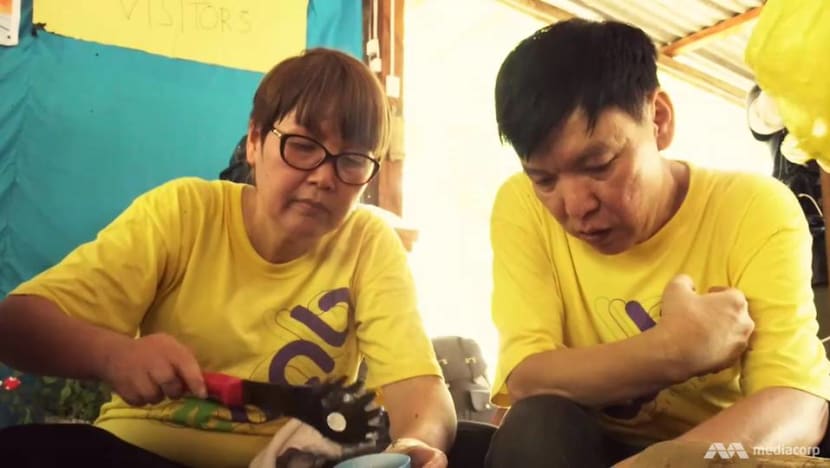For 33 years, Singaporean couple helped a ‘forgotten’ people – at a personal cost
They’ve endured illness, separation from their kids and tough conditions, to bring help to the impoverished Ati tribe of the Philippines, as On The Red Dot finds out.
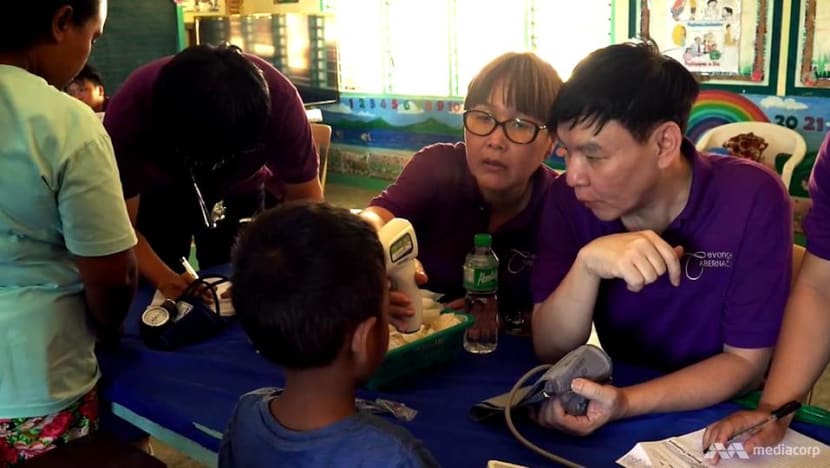
Lily Ang and Toh Nee Lim help bring medical care and medicines to the doorstep of the Ati folks, who live in remote mountain villages.
PHILIPPINES: What was supposed to be a two-year trip to the Philippines to do good, turned into more than three decades of serving others.
But in doing so, Lily Ang and her husband, Toh Nee Lim, sacrificed precious time with family, missed their daughter’s graduation and – most distressingly for her – wasn’t there when her father died.
“I felt like I was a hypocrite loving strangers, and I couldn't be at the death-bed of my dad,” she said with emotion.
“By the time I arrived home, he’d passed on, and I felt so guilty… I thought that I’d failed him because my dad didn't want me to come here as a missionary, but he loved me so much.”
There were also “derogatory” remarks from relatives to deal with, including about the couple’s children growing up in a foreign land.
“Many of them were not supportive, they were very insulting. They looked down on my children and said, ‘Your kids are so stupid… they don’t even know how to speak Mandarin’,” Ang told the programme On The Red Dot.
And yet, the Singaporean couple have few regrets about the life they’ve given up in order to help impoverished communities like the indigenous Ati gain access to medical care and education. (Watch the episode here.)
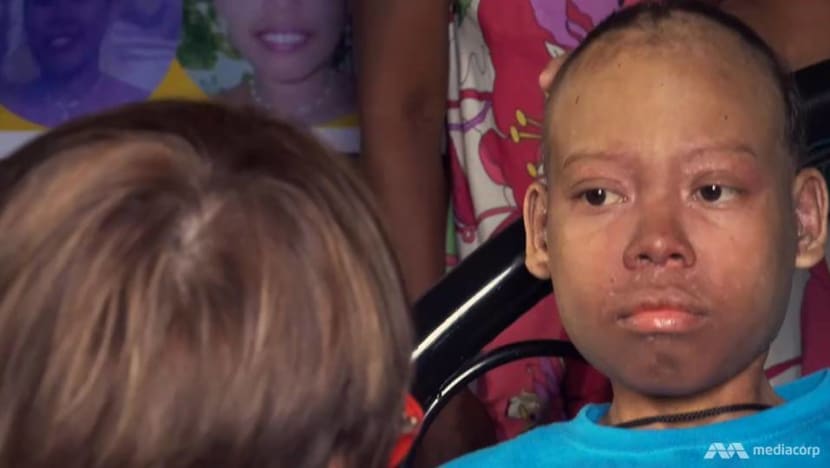
A DIFFICULT START
When Ang and Lim first arrived in the Philippines in 1986 on a mission trip, life was “very, very tough”, she said. They drank and cooked with rainwater, which culminated in her getting hospitalised for amoebiasis, a parasitic infection.
“For almost two decades after, I was very scrawny, very gaunt, and it took quite a while for me to get back to normalcy,” she said.
Both had left their careers behind: Ang had been in marine insurance, and Lim with the Singapore Civil Defence Force. Both, according to Lim, had been “good friends” back in Singapore, “but when we came here, we were enemies”.
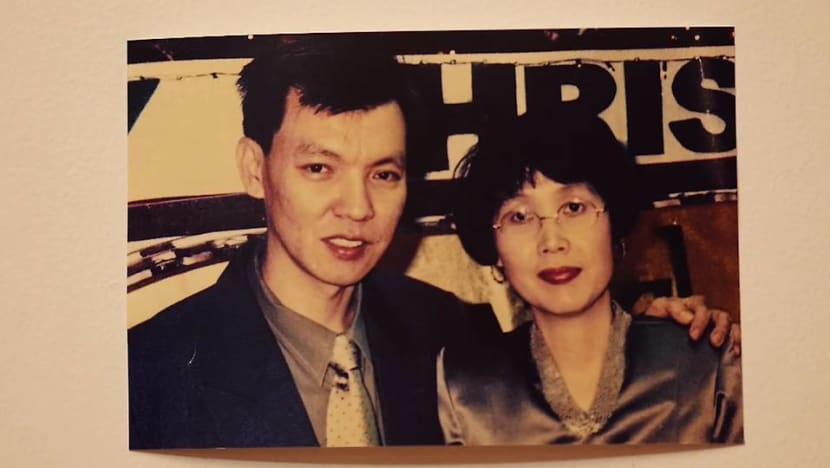
Ang remembered Lim as her “taskmaster” and she, his “servant” who was always assigned the toughest jobs – such as being sent to communities with many drug addicts and drunkards. In her words: “I was the only lady on the team, so he wanted to break my strong spirit.”
But over time, they came to realise that they shared the same values and purpose in life. They eventually got married.
THE FORGOTTEN PEOPLE
One of the communities that the couple has been helping, with food and medical supplies, is the indigenous Ati, a marginalised tribe living in poverty on the island of Panay.
“The Ati are the original owners of the lands of Panay, but because of commercialisation, they were pushed further up the mountain,” said Lim. “And when there’s no source of food, they come down to the city and they become beggars.”
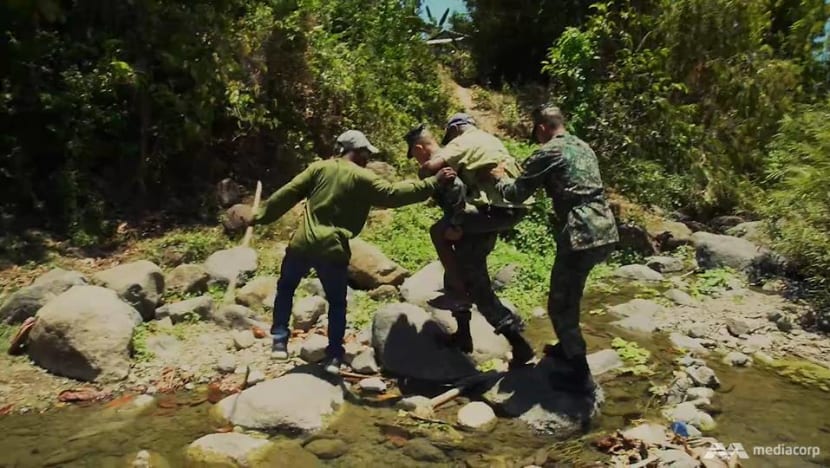
With their homes in remote and isolated villages, most have no access to basic education. Three in 10 are illiterate, and many are unable to find a decent job to provide their families with adequate housing, clothing and food, say the couple. Malnutrition is common among the children
“We see them begging. We feel for them, because the land belongs to them and now they are homeless and being looked down upon, and sometimes being bullied too,” said Ang.
“They are the forgotten people of the land of the Philippines.”
WATCH: Loving the forgotten (4:54)
Even though the government provides free medical treatment to the Ati – one of the earliest inhabitants of the Philippines – Ang says priority is given to Filipinos who are able to pay. Feeling discriminated against, many of the Ati refuse to visit the hospital, resulting in high mortality rates for the community.
“Each time they go to the pharmacy in the town hospital to get free medicine, they are told, ‘sorry it’s not available’,” said Ang. “That’s why we felt the need to bring the medical mission straight to their doorstep. We bring doctors and dentists to them.”
The couple puts together at least three medical missions every year. Costing about S$12,000 to organise, these are funded mainly by donations from their church congregation and friends in Singapore. The couple’s daughters donate most of the medicines.
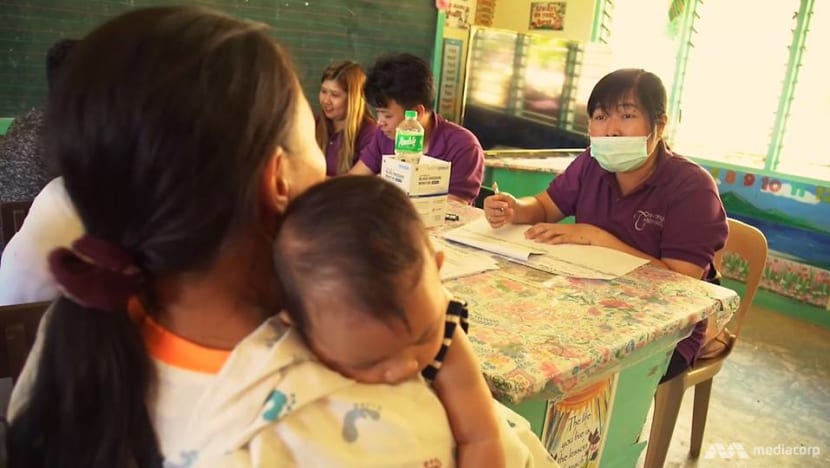
A WAY OUT OF POVERTY
Besides distributing canned goods and rice to the Ati, the couple also raises funds to support the children of the community and provide them with scholarships.
They organise trips for Singaporeans to stay in the community for a month to help teach those kids who are unable to speak and write English. They believe that investing in education is the key to lifting them out of poverty; “with a skill, they don’t have to always look to us for money”, said Ang.
She cited how their youth department is headed by a Filipino who was once so poor that he couldn’t complete his studies in the state university. The couple engaged him to tutor their daughter, and with the tuition fees, he completed his studies and is now a professor.
“He is doing the same thing (we did) – he wants to raise funds to send all the young people under him to school,” said Lim.
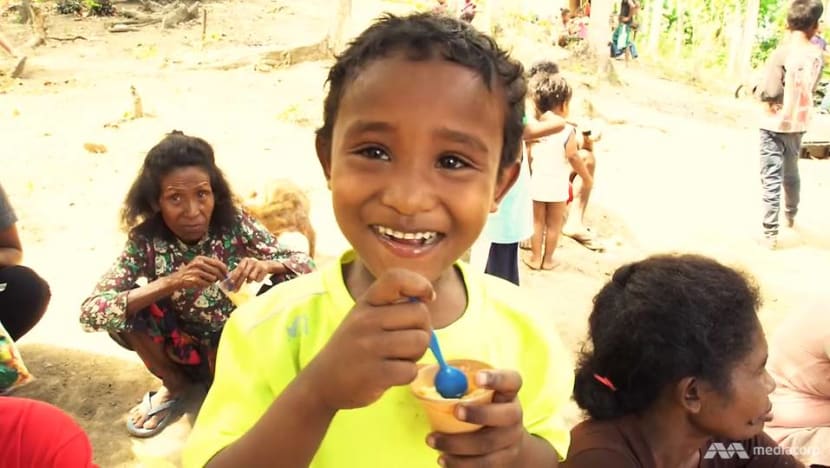
Initially, though, some of the couple’s efforts were met with suspicion by the locals, said Ang.
“They weren't friendly and even though they spoke cordially to us, they were looking at us with suspicion. ‘Are you here for publicity purposes? Are you trying to make use of us to do something?’”
It took time, but their actions won the community’s trust. The Singaporeans have also learnt how to speak Inati, the language of the Ati.
AWAY FROM THEIR DAUGHTERS
In the midst of all this, setting up a family and maintaining relationships over the years hasn’t been easy.
When Ang got pregnant three months after their marriage, she was deeply miserable as she wasn’t mentally prepared for it. Suffering from morning sickness in her first trimester, she wanted to quit the mission.
“Every day, I’d be craving for Singapore food. I was so frustrated, I felt like killing myself,” she said. She did go back to Singapore briefly to satisfy those cravings, before returning to the Philippines where she gave birth to a girl.
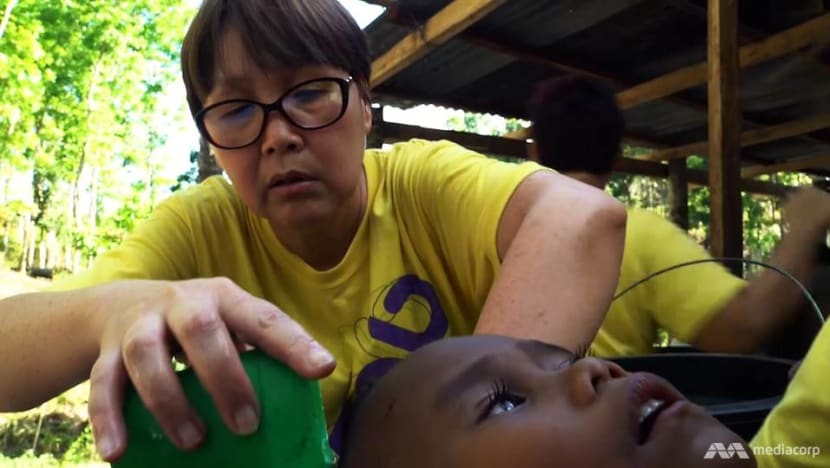
The couple’s second daughter was born two years later. Their older girl left for Singapore to study when she was 15, and the younger at 13. And there were times the children could not understand why their parents had to be away from them.
“The one feeling the brunt of everything was my younger daughter because she felt alone in Singapore,” said Ang, who is now 56.
“She said, ‘why can’t I have a normal family where I come home and my parents are there, and the food is on the table and the lights are on? Why must I always return to a place where I have no parents?’”
Lim, 58, said the separation was very difficult for them as parents too, and their children felt like they came second to their mission.
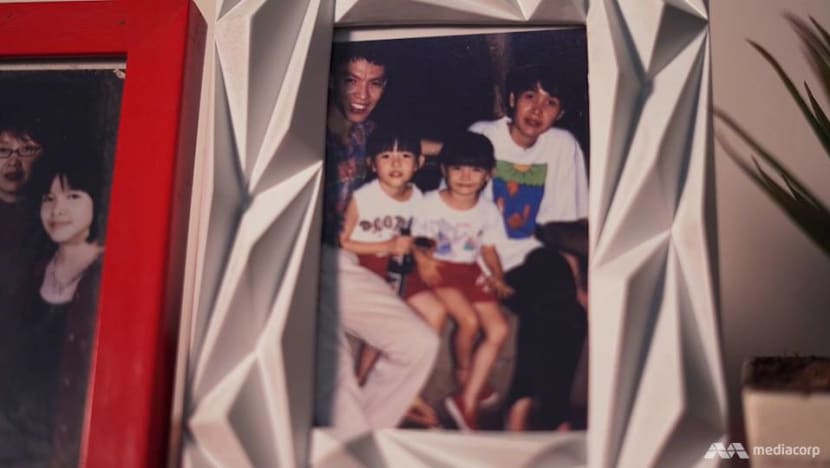
“But, as they saw the way we do the work, they began to understand our motivation and we became closer. In fact, recently my daughters said, ‘Daddy and mummy, the two of you are just awesome people’,” said Lim.
One daughter, now 28, is working in Singapore while the other, aged 30, is studying for her PhD.
Even though the couple has spent most of their lives in the Philippines helping others, they don’t feel tired and plan to continue their efforts.
“Many times, we get discouraged. But we move on and insist on helping the people,” Lim said. “They have come to understand us.”
Watch the On The Red Dot episode here.
